I recently wrote a quite lengthy post on eating meat. Of which I got to the end and then just quietly, deleted the whole lot. All 852 words of it.
I felt like I was justifying my own meaty actions. Which is something I didn’t feel like I really wanted to do or needed to do. I was more than happy to engage in an amicable conversation with anyone who cared to listen. I was also more than happy to pass on any food information that I’d come across in my readings. Informed decisions on any level is an empowering thing, especially when it comes to something as important as food.
We all need to eat, it’s how we go about it that’s important.
So will I be made to feel guilty for eating a little meat here and there?
It’s the basis of many heated debates, but at this stage of my life? No. No I won’t.
I believe strongly in a diet based mostly on ‘real’ foods. Food that comes in as natural a state as possible. Keeping processing to a minimum, packaging to a minimum and being able to identify the food in front of you are top of my lists.
I also believe different bodies require different foods. Some people can exist happily as a Fruitarian and others strongly advocate they feel healthier on a Paleo based diet. I wouldn’t like to base my diet on either of these, but I respect the fact that they feel happy and healthy eating as such. I remember sitting in the audience of the His Holiness the Dalai Llama once, and his comment on the fact that he ate meat. Shocked I wasn’t, but happy yes, as he had obviously made an informed decision; and decided he functioned better with a small meat intake.
As meat eaters, vegetarians, vegans, raw enthusiasts, sugar free, gluten free, locavores, we all have choices to make and ethics to consider when we are preparing that dinner plate in front of us. (Unless by chance you are a city-living-raw-vegan-sugar free-gluten free-locavore AND on a family budget, in which case holey moley I would love you to comment and please share your story!)
Some links of interest on the ethics of eating….
Meat Eaters– Where has the meat come from? How was it raised? American Meat-film, Fast Food Nation– film
Pescatarian– love eating canned tuna? Have a look at this snippet on what line and pole fishing actually is, and the value of paying that bit extra for your can of tuna. Also read here on GoodFishBadFish– sustainable seafood, what’s it all about or Slow Fish– and it’s campaign.
Vegetarians– Do you eat seasonally? Food Miles, have you considered them, how many do you clock up?…this site is so very humbling.)
Quorn– What do we know about this myco-protein? Made from mushrooms it isn’t.
Eggs– In what condition hens have your eggs come from? Caged Eggs
Are your meat substitutes highly processed coming in excessive packaging and have a full paragraph of odd sounding ingredients?
Soy products– How processed is this product, is palm oil being used within it? Palm Oil and Indonesian rainforests
Vegans–
There are an array of options for cow milk alternatives- soy, almond, rice. Is there vegetable oil in there. Does this vegetable oil contain palm oil? Sunflower Oil? Added sugar? Food miles on your soy milk? where has the alternative milk been grown. Was it processed in the same place or somewhere else altogether?
Quinoa- Is it local? Where has it been grown? Slow Food- Questioning Quinoa
Sugar Free-
Are you using sugar substitutes such as agave syrup. Have you considered the food miles (unless you live in Mexico) and extensive chemical process that is needed in order to obtain this yield?
Coffee– Got a coffee habit- Is it fair trade? Food miles? Excessive packaging on your daily take away coffee cup? Keep Cup– reusable coffee cup
Chocolate- Is it again fair trade? Does it have even more excessive packaging? Does it have an extraordinary amount of food miles? Was it harvested using slave labour? (Despite popular belief the cocoa bean is not produced in Belgium.) Slavery in the Chocolate Industry
There is always an impact on our food choices, regardless of what food types we mostly eat. Pretty much every choice we make has an impact. If more and more people make informed choices about what they are eating and passing a little less judgement on those that eat differently perhaps we would make some sort of head way in our food environment.
Eat Food. Not Too Much. Mostly Plants…[Michael Pollan]
Our family meat intake is really quite small, we eat a mostly vegetarian diet, and bought meat is always considered; where it has come from and how it was raised. Fruit and vegetables are eaten in season, vegan and gluten free meals are becoming regulars, I try to make as many things from scratch as time allows and we eat on a family budget- keeping things as locally produced based as possible.
This doesn’t make me a sainted eater, it makes me an informed eater and at this stage, that’s the very best I can do.
So, to the next person that gets on their high horse about me making a conscious decision regarding what I have chosen to eat, please don’t. As I might just eat that high horse… I hear they’re quite delicious.
***********
Thoughts? Input? Ideas? Everything up for discussion in an unbiased nonjudgemental fashion.

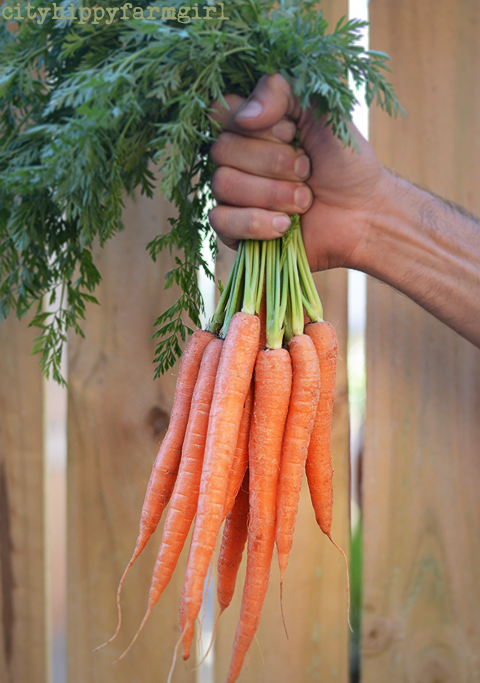
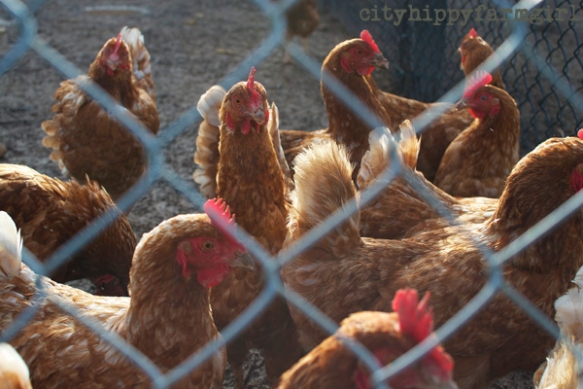
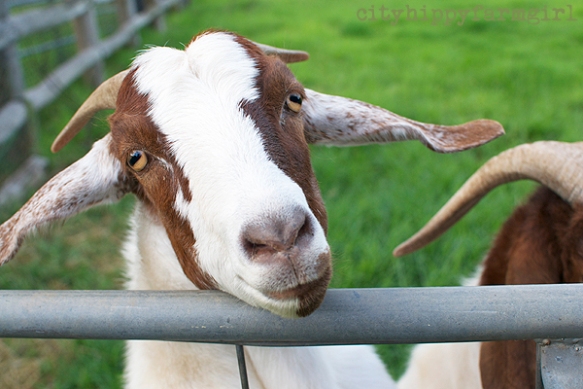
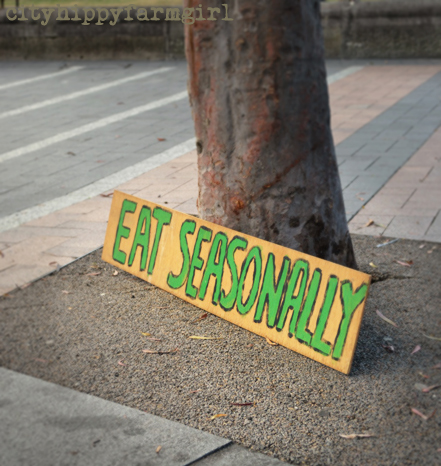
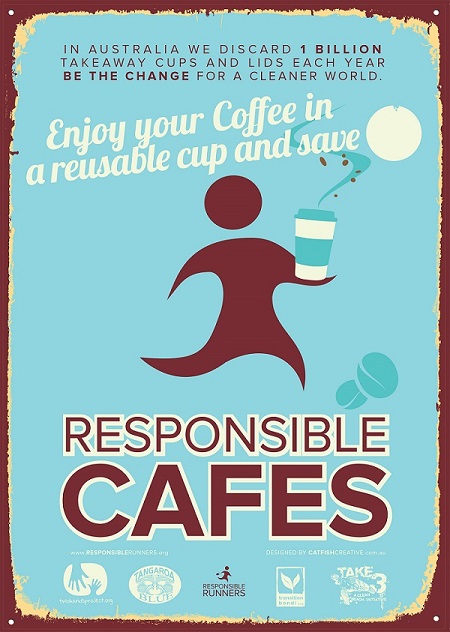
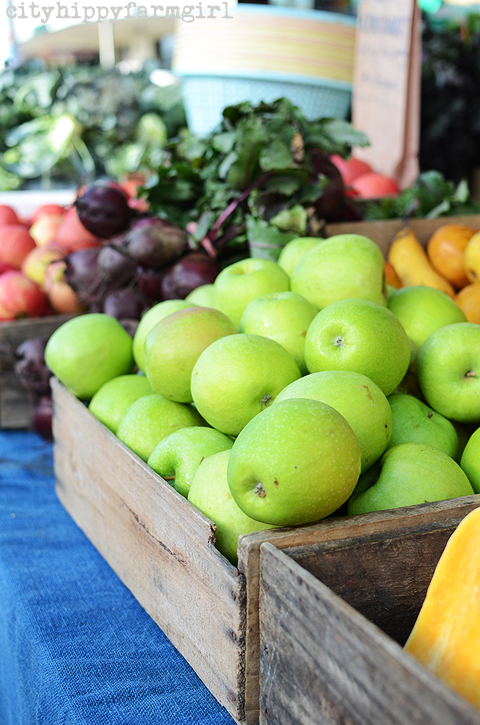
We eat practically the same way as you. I have tried all sorts of diets, 4 months ago I gave up meat only to put a little back in to my diet recently as I was becoming iron deficient and not getting enough Vit B. I would rather eat the whole food than take questionable supplements. I don’t care for the judgments of others either, I will eat whatever feeds my body best and I will make changes if that’s not working for me, period 🙂 I like this post and will come back to some of these links, thanks 🙂
LikeLike
Good to hear you’ve found a balance of food that your body likes and is working for you. There are so many links I could have added, but I hope the ones I have linked to hold some interest and are helpful. Happy reading!
LikeLike
I change about somewhat over time but generally I eat what I feel I need at the time.
Great links, I shall get back to them.
LikeLike
You have written a great post, and raised a lot of interesting issues with links. I have been on a similar journey of wanting to be more conscious of where my food was coming and trying to inform my self about the issues around food production and trying to eat in a healthier but more ethical way. Two of the most important documentaries for me on this journey were Food Inc. and then Forks Over Knives. These 2 documentaries were life changers for me.
LikeLike
Food Inc certainly raised a lot of conversations in this household after watching it. I haven’t seen Forks over Knives but just had a look at the trailer- bookmarked for future watching, thank you.
LikeLike
Eating has become so complicated. I’m with you on trying to be a responsible eater, but I don’t let it rule my life. Eat seasonal, local and know where your food comes from.
LikeLike
Yep, simply Debra, that’s it. Seasonal, local and know where it comes from. But you’re right, it has become incredibly complicated.
LikeLike
There is another interesting conversation in all of this, which is why have opinions about food become, pretty much all of a sudden, so heated? It’s as if the dimensions of life over which we have freedom and control have become so constrained that people are pouring all their “opinion freedom” into a smaller and smaller area. Meat, gluten, fluoride – a post gets flooded with strongly held and defended opinions. Asylum seekers, climate change, TPP – it sinks in a sense of powerlessness. And yet, if we don’t act on these bigger issues, within our lifetimes I think we will be very happy to eat anything edible we can find.
LikeLike
I have to admit I don’t know much about the TPP, but on some reading just now, damn I really should. How have I not been keeping track of this?? That will change…thank you Linda.
An article here on secret drafts of the agreement from the SMH if anyone is interested.
LikeLike
As always, thought provoking stuff Miss Brydie and certainly something that will impact my own food choices with my own kitchen to stock and own fridge to store local goodies!!
LikeLike
Fantastic! I’ve been making a conscious decision over the past 12 months to eat locally. I think of all diets, supporting local and being aware I four food miles is the best decision I can make.
LikeLike
Hear hear! You’ve described my thoughts exactly. Local, thoughtful production is my buying guide – I don’t buy into the whole ‘certified organic’ thing so much either, it can be a hard thing to navigate, although in some instances it’s a good thing…it’s really important to be educated because the marketing in our food systems is so blatantly tricky.
LikeLike
It really is tricky Becs. For a long time it exploded my brain every time I would reach for a product, trying to decipher by the label what was my best option- thankfully it’s a tad easier for me now!
LikeLike
“Food Inc” scarred my husband and I for life! We do our best to make good choices, but it can be very hard! Great post.
LikeLike
Great post! I like to think I make similar assessments of what and how to eat. Much easier not to accidentally eat horse that way, if you recall one of the uk’s recent food scandals!
LikeLike
I eat gluten free and lactose free by necessity not choice. It can certainly be hard considering food miles and origins when choices are restricted. I try to make up for this by growing as many of my families veggies as possible, making as much from scratch as I can (yoghurt, icecream etc) and definitely purchasing Australian products if I use tins (tomatoes, pineapple etc) It’s nice to see a lit of restaurants embracing ethical eating strategies lately, and hopefully this won’t be just a trend but a way of life from now on.
LikeLike
Loved this!
For me it is all about making informed choices… not sticking my head in the sand and not wanting to know where my food comes from (which I used to do a lot of!). We don’t always make the most ethical or healthy choice, but that is life and I am a big believer in the idea that something is better than nothing. I also think a conversation about food choices also has to include privilege, not everyone has the same opportunities to make choices about what they eat for a variety of reasons… but talking about it and learning about it is always important.
LikeLike
Kate thanks for taking the time to comment, and you are so right, privilege is a MASSIVE topic in terms of what we eat as a globe.
LikeLike
Like everything in life we do what works for us and everyone is entitled to their opinion. What I do like that I am seeing in more recent times is more and more people are wanting to eat locally and seasonally than before and if I have a choice to buy Australian vs the imports then I do (that being said I did by my tin of tomatoes that were from Italy recently). I do the best I can given our tight budget constraints as well, being a single mother. I teach my kids that cooking from scratch is cheaper and tastes way better and is healthier for you and of course all you need is time to make it. We made Turkish Bread the other day which took from start to finish 2.5 hrs (mostly in the waiting for it to rise) I I know I can buy that in Woollies for $3 but it’s great to teach my son how to cook it from scratch and he was thrilled. See post here.
http://www.oursimpleandmeaningfullife.blogspot.com.au/2014/01/home-made-turkish-pride.html
We do the best we can and teaching them about growing food and making food from scratch goes a long way in them thinking “this is normal”. Everyone can make informed choices at certain stages of their life about what they eat and where food comes from but I can definitely see the shift these days with so many more inner city blogs about trying to live simply. Regards Kathy A, Brisbane, Australia
LikeLike
I don’t think it’s just inner city blogs Kathy, I think there is a big shift across so many blogs around the world (city, rural or anything in between), that simplicity or voluntary simplicity is a key word. A shift, a change, a want of people to change things round a bit, to cut back and indeed live a simpler life. Who knows, maybe it will just keep getting bigger and bigger? (well a girl can hope anyway.)
and I do think there is nothing so valuable as teaching kids to cook.
LikeLike
Lovely post B. I think the ethics of eating have become as complicated as this post highlights, and if there is one thing I strongly believe, it is that no one should be judged for their eating choices. I know some vegans think very differently but there is a reason I am a mostly vegan and not a 100% strict one – life is a complex affair and I don’t think a highly processed, flown-from-American vegan product is necessarily better than a once in a while, friend or family baked cake with milk/egg. I also think there is a huge distinction between animals raised on grass locally and those raised on grain and shipped halfway around the world.
I’m just meandering my thoughts onto the comment box but wanted to applaud this post and say that if we could all just think a bit about where our food comes from (or even a lot, but not to the point we all go crazy…), and accept none of us are perfect, than things would be rather nice.
LikeLike
I always welcome meandering thoughts in the comment box Kari. This is what I’d hoped for a discussion, a conversation, and thoughts to be, well thunk 🙂
LikeLike
This is a wonderful post! I agree, we should all stick the lifestyle that suits us best. Some days I think that I could easily be vegetarian, other days I don’t know if I can justify it enough morally. I love the idea of buying ethically raised meat, but at the moment on a student budget I am unable to afford “free-range” or “organic” meats. Great read! And very thought provoking.
LikeLike
Some interesting food for thought
Thanks for putting all issues in one place. We grow most of our own meat- beef and chicken- and it really annoys me when I read that eating less meat it better for the environment. It all depends doesn’t it! ?
LikeLike
there is an interesting article here if you are interested Liz. It’s from several years ago and US based but I think still relevant as something to think/talk about.
LikeLike
I am wary of anyone telling me what I can and can’t eat and anyone insisting that EVERYONE SHOULD do the thing they did that work. I have over the past 10 years or so watched many friends who were initially vegan, first become vegetarian and now eating meat and they can’t believe how much better they feel, and these were people who were really careful about eating a balanced diet. I think exactly like you said there is no one size fits all way if eating.
Great post!!
LikeLike
I stopped eating meat when I was twelve. I’ve been judged from both sides (people need meat/not vegetarian enough/not vege for the right reasons) ever since. I doubt it will ever stop, but I don’t mind so much, it’s always about them working through their issues, not me and mine. I think it’s important to be mindful of what and why you’re choosing, and then own those choices. I think you’ve got a really healthy attitude to food choices, love what you’ve written and all the resources! I love how mindfulness has become much more mainstream recently.
LikeLike
I think you’re one of the most considered eaters that I know. How you manage to be so consistent with a family to look after and on a budget is quite remarkable. I try to think of food miles, seasonality and animal welfare, but I find it all too easy to get distracted.
There was a wonderful, enlightening and slightly sad show on the BBC by Simon Reeve last weekend following the tea trail. It was an eye opener in where your tea comes from. There is a second show on coffee tonight that I intend to watch.
The ABC (or was it SBS?) used to air Simon’s shows a few months down the line so hopefully it will make its way over to Australia soon.
LikeLike
I’ll keep an eye out for it Richard. I do like Simon Reeve. He’s certainly not a scaredy pants!
As for me, like I said, definitely not a sainted eater. I certainly have moments when I really don’t want to make bread or am ready to tear my hear out with thinking what to feed everyone for dinner. And I also have a ridiculous soft spot for German marzipan. It’s all a balance, and it’s just finding the right one.
LikeLike
LOVE this post! I am so glad that you took the plunge and brought up some serious questions about food. Chocolate, coffee, quinoa (we’re big fans in my house) – you have hit all of us in the gut! I have been a vegetarian since the impressionable age of 16 when I received a flyer in the mail from an animal rights organization. It changed my life, even affected who I was going to marry. (told my current husband that I wouldn’t marry someone who ate meat and so he came over to the veggie side) I am a vegetarian for animal rights reasons, but I also feel strongly about eating sustainable food. So after learning about my “eco-footprint” in college, I stopped eating “fake” meat that was full of corn and soy. I do eat dairy, but only from farms that treat the animals right and raise them organically, if not certified organic. Thanks! Oh, and I occasionally eat fish if we are on the coast or somewhere that it is local, but I always feel guilty about it. That first video just pushed me over the edge – can you imagine being pulled throw the air by a hook in your mouth and then flung onto the deck like that? Good lord, these fish have nerve endings too! .
LikeLike
Thank you for taking the time to comment Katie, I really appreciate it. There was a little hesitancy on my part on pressing publish. I knew how I felt, but wasn’t sure how others would, so thank you.
As for the line and pole tuna method. Really it’s the better one if you are going to eat tuna. It’s not cheap, (but seafood shouldn’t be!!) and it’s a far better method than the regular commercial fishing methods.
LikeLike
Oh, and also wanted to say that my word for 2014 is AWARE and you have just helped me on that path!
LikeLike
I am with you on ethical production of our food. I am a vegan but my food choice started with me being able to fit through doorways rather than any desire to force my fellow man into rubber trousers. I have no problem with people eating ethically sourced meat and Stevie-boy is a meat eater but we have our own chooks and use their eggs in our cooking, we grow our own vegetables and I make most of my base ingredients (sesame milk, etc.) myself. We now grow quinoa, chia and amaranth in Australia and they are excellent arid crops to grow along with sesame seeds and many of our lentils, beans and pulses. I use date paste for all of my sugar needs and make kefir and kombucha to aid digestion. I feed my milk kefir grains on the sesame and date paste milk that I use in my tea. So far they are surviving admirably (as am I 😉 ).
My motto is if it is processed to something unrecognisable from its original state, I don’t use it. I don’t use agave or most vegan subs because they aren’t much better for the environment than their chemical nightmare cousins on the supermarket shelves. I fear I may be drummed out of the vegan confraternity (again…) as I hold our roosters while Steve cuts off their heads. Peace and quiet, ethically produced chook mince and dog food and the best stock in the freezer…
The food scene of late is a madhouse. It seems like the rise of food blogs and Master Chef has driven society wild with the possibilities to elevate themselves up the social ladder at the expense of “everyone else”. How far can we take ourselves before we meet ourselves coming back down? Many of the vegan, gluten free, running bloggers that I follow are obviously and most painfully anorexic and we are holding them up as examples of “shining healthy beacons to the masses?!” People jump off one bandwagon straight onto the next one that rolls into town to become extreme “bad arses” (Aussie spelling FULLY intended there 😉 ) and elevate themselves that teensy bit further up the ladder. Has anyone stopped to ask themselves what is up the top of that ladder?
I just want to point out that my grandmother lived till she was 82 (but she smoked most of her life). My other grandmother lasted till 96. My next door neighbour is an alert, happy and most energetic 91. They ate meat, cheese, they fried things, they ate butter, they ate bread and none of them dieted or went without. Cake was a regular thing as were biscuits but they were home-made as a rule. When the industrial revolution came and 50’s USA started to churn out mass produced foods that needed to be fortified to make them shelf stable our desire for convenience hung like the sword of Damocles over our heads. We eat processed food at our peril. Whether we are eating meat, fish, turnips or Mesopotamian ethically sourced squirrel meat we really do need to think about how it was produced, where it came from and how much it is costing not only us at the point of sale, but the environment and ultimately the earth that we all live on.
LikeLike
I think that’s the problem in our culture though, it’s far too easy to just blindly pull things off shelves and get on with the day. There is so very little thought needed to fill a grocery trolley and get on with it. Food on kitchen shelves and food of some sort in your belly- that’s the most important thing, right?
Can you imagine if 50% of Australia turned around and thought of your last line (people in the privileged position to be able to)…”we really do need to think about how it was produced, where it came from and how much it is costing not only us at the point of sale, but the environment and ultimately the earth that we all live on.” Oh what a difference there would be! (and that goes with any purchases not just food.)
LikeLike
Exactly! We all seem to spend an inordinate amount of time judging each other for what we are putting in our shopping baskets when the problem is that we are taking those baskets into supermarkets and paying middle men to provide us with our wants and needs when at the end of the day we need to be connecting and reconnecting with the source of our food. Anyone would think that food wasn’t one of our needs the way that we hand all facets of its production and placement in front of us over to “someone else”!
LikeLike
Great post 🙂 I was brought up as a vegetarian and only really started to eat meat when I was pregnant and my body was telling me I needed meat, now I eat meat but only eat organic happy meat. Same for eggs. I always struggle with the price on a budget, but I know it’s because it costs so much more to farm organically and justify it by the fact we don’t eat meat every day and I make sure I use it with respect, I’ll make stock from the chicken carcass if thats what we’ve had etc. Also I don’t spend money on buying processed snacks etc. I can see that it is harder to eat locally here, most of the fruit and veg seems to be imported, but this morning we walked up the road and bought apples from the local random farm, and we buy organic milk that comes from Zurich 🙂 Switzerland is super expensive, more so than Sydney, but organic milk is a third of the price which I’m loving! I find it strange that most Swiss people seem to buy UHT milk though! I guess I’m trying to move my family to eating more whole food, I seem to have really bonded with Jude Blereau, I love her cookbooks and philosophy to food which seems to be in line with mine 🙂
LikeLike
I wondered how you went with that book 🙂 I thought you would love it.
Now UHT milk, I wonder why that is, if organic milk is easily available and it’s local?? Tell me, are there farmers milk vending machines available, (probably in more country areas.)
LikeLike
Like you, I’m just trying to be as informed as possible and do the very best I can. I think if I went to the USA, unless I was sure the meat was organic, I would be a vegetarian. They way their meat is processed is horrifying. I try to eat seasonally, I only buy organic, free-range eggs and when it comes to meat, I go for what I know has been treated kindly and fed properly. I’m also no saint, but I’m trying! xx
LikeLike
I am a vegetarian from the US and I agree that factory farms are hell on earth for the animals that are “processed” through them. But why are they any different from the way that Australian meat is processed? I don’t think every Australian chicken, cow, pig, goat, and lamb is killed on a family farm by someone that they know in the last stressful way possible.
LikeLike
GREAT post Brydie. Looking forward to a proper peaceful read of it later. I always have GoodFishBadFish on hand when at the fish market. It’s prevented me from making many a bad fish choice.
LikeLike
Fantastic post, Brydie. So many important issues and differences of opinions. Food has become such a public debate for such a personal activity. You know my recent diet shift changes and introducing new foods has me wondering..where are things grown, excess packaging etc. It frustrates me that when we are trying to make positive changes to our own health and our family’s we still are up against a rock and a hard wall regarding ethics in other areas. It does my head in at times! Don’t know what the solution is, I can only grow as much as I can and make informed choices elsewhere – there is always going to be a compromise or an element of guilt involved, the key is to not let it get us down and to keep persevering on our own ethical journey. x.
LikeLike
That’s what I’ve found as well Christine, there is ALWAYS a compromise at some point. It’s where you decide that point is. Thanks for taking the time to comment.
LikeLike
So true…every choice we make has consequences and costs. There are no perfect choices. We can only do the best we can with the time, information and resources we have! Hopefully the good things we do (making things from scratch, buying locally grown food, etc) balances out some of our wicked indulgences (air miles in ‘special food’, etc.)!
LikeLike
Great post Brydie. Good on you for raising a bunch of really important questions that everyone should be considering when they choose what they eat.
I think a big part of the problem is that the majority of people simply aren’t well-informed enough about the various aspects of food production and distribution to actually care about, or be able to make an informed choice about, the nutritional value, chemical additives, energy input, water usage, farmer welfare, or long-term sustainability of what they choose to put in their mouths.
As a community, we just aren’t doing a good enough job of educating ourselves when it comes to the the most important thing we spend our dollars on – the stuff that sustains our lives and our dictates our health.
LikeLike
One more thing… I hate it when people say they can’t afford local or organic produce, yet they will happily eat out one night a week (the cost of around a entire week’s worth of fruit & veg) or buy a couple of coffee’s each day, etc. An extra $10 or $20 a week to buy sustainably-grown food is not much compared to the amount most people spend each week on non-essentials!!!(Sorry about my little rant!)
LikeLike
I think I am with Linda Woodrow xx
LikeLike
I really appreciate this post and the comments as I have given these topics much thought over the years. A few years ago I read “the 100 miles diet” a book by a Canadian couple who spent a year sourcing all their food from within a 100 mile radius from their home. I found this book inspiring and challenging. They went from vegan to omni to succeed in their goal. As a vegetarian of 25 years I wondered if I could do the same without having to resort to meat eating. I am lucky to live on the eastern outskirts of Melbourne, Victoria where I can source an abundance of fruit,veg, dairy and eggs within 100 miles, but legumes, nuts, seeds and grains were a problem, but good quality organic/BD meat is plentiful also. As meat eating does not appeal to me I decided to set my own parameters, and I feel I have reached a good balance for me and my family (2 vegos, 2 omnis). I have found I can at least source most of my needs from within my own state of Victoria and most from within Australia. I buy Australian olive oil,legumes, nuts, seeds, grains, quinoa, chia and flours. I now choose non-organic Australian over organic imported if there is no Australian organic option. Buying Australian beans and lentils meant no more cans!! When I can I buy in bulk my siege mentally feels safe with a pantry well stocked with affordable plant protein that has the bonus of not needing refrigeration or excessive plastic packaging. Cooking beans from scratch does mean more time an organisation in the kitchen but it now become part of my routine. I will always choose butter and cream over margarine and the latest coconut product. People have traded spices the world over for hundreds, maybe thousands of years so I happily continue to enjoy spices, balsamic vinegar and soy sauce from abroad. Although I enjoy good health on a vegetarian wholefoods diet I do see animals as an important part of sustainable organic agriculture. I’ll just leave the eating of them to those who enjoy those foods. Thanks again for this discussion and I recommend reading the “100 Mile Diet” I found it to be a great read.
LikeLike
Cathy thank you so much for your comment. I applaud what you and your family do. I think the outskirts of Melbourne would be a pretty sweet area for having a lot of things being made available to you. I agree with you about the nuts, legumes and seeds…it’s really tricky sourcing what I want. Australian grown buckwheat and sunflower seeds are my numero uno’s and it can be really hard. My pesto NEVER has pinenuts in it due to not being able to source Aussie ones, although almonds or pecans make a wonderful substitute. I guess that’s the thing finding a balance that you are happy with…and sure sounds like you have.
(ps. loved that book.)
LikeLike
Yes, can’t remember the last time I made pesto with Pine nuts I often use Walnuts in a Pesto. Pine Nuts and many other staples all seem to be from China these days, sunflower seeds included.When Kialla Pure Foods Organic Australian Sunflower seeds make a brief appearance on the shelf of my local organic grocery I always grab them. I managed to get some Australian Sesame seeds the other day also!!!
LikeLike
Pingback: Eat Local | cityhippyfarmgirl
Pingback: This Week - picklebums.com
Love it – there are some great resources here.
I wrote a whole post for Down to Earth Mother on which diet is best for the environment and deleted it because I didn’t want to get into a mud/salad/chop-slinging fest with anyone. In short, eat as much as you can from a source from which you are no more than three people removed; eat enough, not too much; make as much of it packaging-free as possible; and don’t rely too heavily on one food group or ingredient.
LikeLike
Pingback: Kangaroo Pie | cityhippyfarmgirl